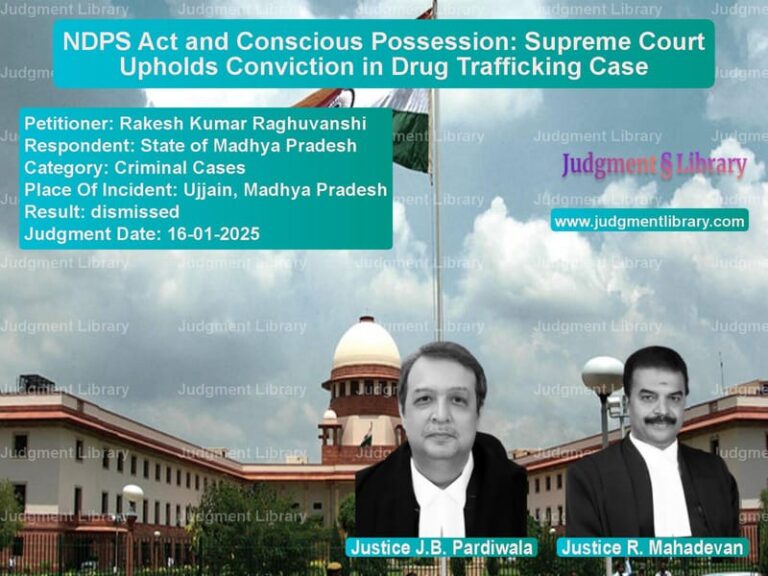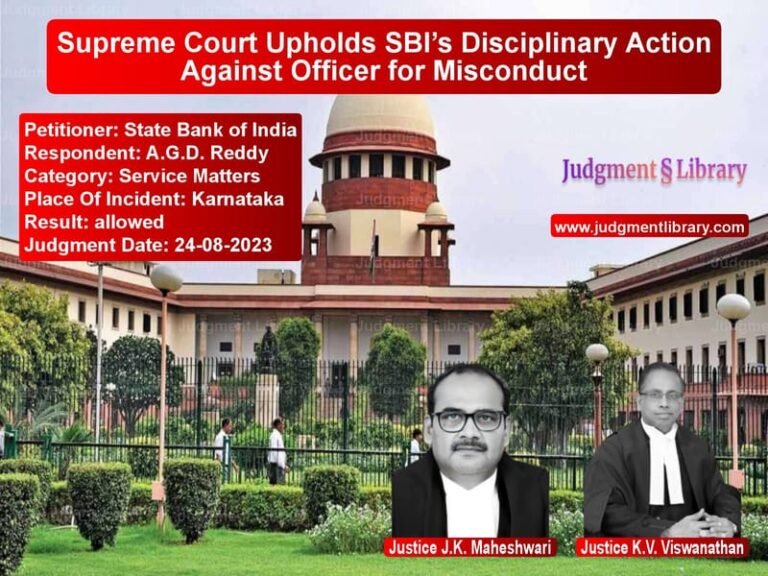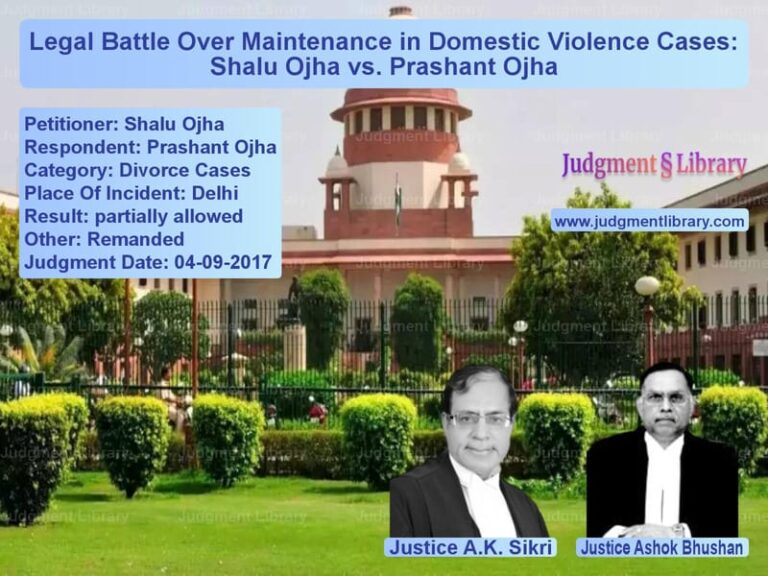Supreme Court Acquits Accused in Rape Case Due to Delay and Lack of Evidence
The case of Parkash Chand vs. State of Himachal Pradesh is a significant Supreme Court ruling that addresses key legal issues related to rape convictions, delay in lodging FIRs, and the necessity of corroborative evidence. The Court acquitted the accused, emphasizing that the prosecution failed to establish guilt beyond reasonable doubt. This judgment sets a precedent on the importance of timely complaint filing, evidentiary standards, and judicial scrutiny in sexual assault cases.
Background of the Case
The case originates from an alleged rape incident that took place in December 1999. The prosecutrix claimed that the appellant, Parkash Chand, forcibly took her to a secluded location, threatened her with a knife, and raped her. She did not report the incident immediately but later lodged an FIR in July 2000, nearly seven months after the alleged offense.
The trial court convicted the accused under Sections 376 (rape) and 506 (criminal intimidation) of the Indian Penal Code (IPC) and sentenced him to seven years of imprisonment. The Himachal Pradesh High Court upheld the conviction, which led to the present appeal before the Supreme Court.
Prosecution’s Case
The prosecution alleged that:
- The accused forcibly raped the prosecutrix when she was returning home in December 1999.
- He threatened to kill her if she disclosed the incident to anyone.
- The prosecutrix remained silent due to fear and shame.
- She eventually confided in her relatives after realizing she was pregnant.
- The accused made an extra-judicial confession before P.W.4 and P.W.5.
Petitioner’s Arguments
The appellant, Parkash Chand, raised the following arguments:
- The case was based solely on the testimony of the prosecutrix, without any medical or forensic corroboration.
- The delay of seven months in lodging the FIR was unjustified and indicated fabrication.
- There were contradictions in the statements of prosecution witnesses, particularly regarding when and how the incident was disclosed.
- The prosecutrix had continued to visit the accused’s house even after the alleged incident, raising doubts about coercion.
- The medical report suggested that the prosecutrix was habitual to sexual intercourse, contradicting her claim of being forcibly raped.
Respondent’s Arguments
The State of Himachal Pradesh defended the conviction, arguing:
- The testimony of the prosecutrix was consistent and credible.
- Delay in lodging an FIR in rape cases is common due to social stigma and fear.
- The accused had confessed to the crime before P.W.4 and P.W.5.
- The prosecutrix had no motive to falsely implicate the accused.
Supreme Court’s Observations
The Supreme Court critically examined the prosecution’s case and identified several inconsistencies:
“The impact of a delay of seven months in filing the complaint cannot be ignored, especially when there is no satisfactory explanation provided.”
The Court noted that prompt filing of an FIR allows for forensic examination and collection of medical evidence, which was absent in this case. The judgment cited prior rulings where undue delay in filing complaints led to acquittals due to lack of corroborative evidence.
Regarding Extra-Judicial Confession
“Reliance on an extra-judicial confession must be approached with caution, particularly when it is not corroborated by independent evidence.”
The Court pointed out that the alleged confession made by the accused was unsubstantiated and could not be the sole basis for conviction.
Medical Evidence and Witness Testimony
The Court examined the medical report, which stated that the prosecutrix was habitual to sexual intercourse. This contradicted her claim of being raped, further weakening the prosecution’s case. Additionally, there were discrepancies in the testimony of P.W.4 and P.W.5 regarding the accused’s alleged confession.
Final Judgment
The Supreme Court ruled:
- The delay in lodging the FIR was unexplained and raised doubts about the authenticity of the allegations.
- The absence of medical or forensic evidence significantly weakened the prosecution’s case.
- The extra-judicial confession lacked credibility and could not be relied upon.
- The High Court had failed to consider key contradictions in the prosecution’s case.
- The conviction was set aside, and the appellant was acquitted.
Conclusion
This judgment reinforces the principle that rape convictions require solid corroborative evidence and timely complaint filing. The ruling highlights that mere delay in lodging an FIR does not automatically invalidate a rape claim, but an unexplained delay combined with lack of supporting evidence can weaken the prosecution’s case. The Supreme Court’s decision ensures that judicial scrutiny remains paramount in cases where an accused’s life and liberty are at stake.
Petitioner Name: Parkash Chand.Respondent Name: State of Himachal Pradesh.Judgment By: Justice Ranjan Gogoi, Justice Sanjay Kishan Kaul, Justice K.M. Joseph.Place Of Incident: Himachal Pradesh.Judgment Date: 12-02-2019.
Don’t miss out on the full details! Download the complete judgment in PDF format below and gain valuable insights instantly!
Download Judgment: Parkash Chand vs State of Himachal Pr Supreme Court of India Judgment Dated 12-02-2019.pdf
Direct Downlaod Judgment: Direct downlaod this Judgment
See all petitions in Rape Cases
See all petitions in Bail and Anticipatory Bail
See all petitions in Judgment by Ranjan Gogoi
See all petitions in Judgment by Sanjay Kishan Kaul
See all petitions in Judgment by K.M. Joseph
See all petitions in allowed
See all petitions in Quashed
See all petitions in supreme court of India judgments February 2019
See all petitions in 2019 judgments
See all posts in Criminal Cases Category
See all allowed petitions in Criminal Cases Category
See all Dismissed petitions in Criminal Cases Category
See all partially allowed petitions in Criminal Cases Category







